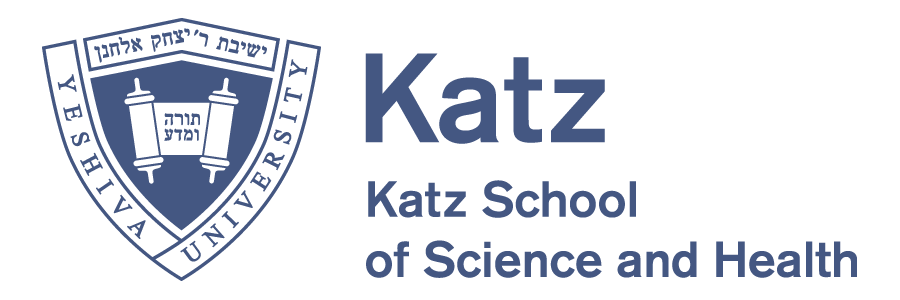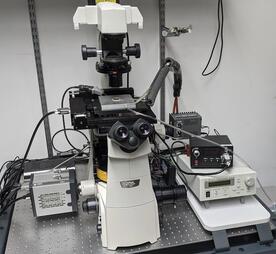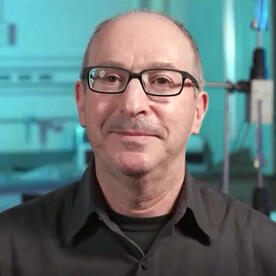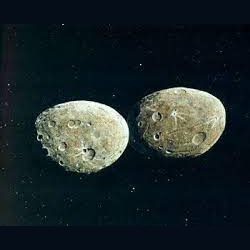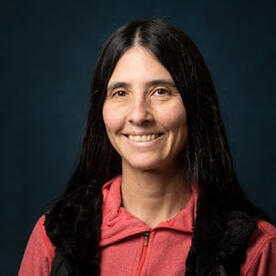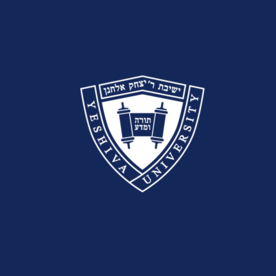
M.A. in Physics
Making the World Smarter, Safer and Healthier

Eligible for


Affordable Fixed-Rate Tuition

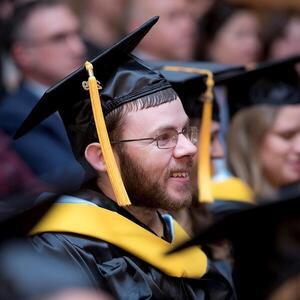
QS Rankings


Alumni Career Outcomes

M.A. in Physics
10 Courses I On-Campus in New York City I Full-Time or Part-Time
YU’s M.A. in Physics specializes in solving problems in classical and quantum information, mechanical, optical and electronic materials behavior, propagation of waves, biological matter, dynamics, statistical thermodynamics, and hardware and software development. These activities are of intrinsic interest from a fundamental point of view, and they are also geared toward applied physics and engineering.
Our 30-credit master's in physics explores the fields of foundational and applied physics. It prepares students for careers in academia, industry, teaching, finance and entrepreneurship while also developing an artistic appreciation for observing nature from a physicist’s perspective. With robust knowledge of computer software and hardware development, our graduates secure rewarding jobs in the high-technology field, including developing their own high-tech startups. They also continue on to Ph.D. programs and apply their knowledge in a range of industries, such as engineering, business, finance and medicine. Come to New York City to study and network with the best. Generous scholarships and financial aid are currently available.
Jobs for physicists are expected to grow 7 percent until 2029, faster than the average for all occupations, and the median annual salary for a physicist was $122,850 in 2019, according to the U.S. Bureau of Labor Statistics.
Program Highlights
Gain practical hands-on programming experience
Learn engineering/applied physics and computational physics, as well as hardware use and computer software development
Utilize state-of-the art laboratories with equipment for advanced experiments in mechanics, electromagnetism, optics, lasers, electronics, quantum and nuclear physics, as well as mechanical and electrical engineering
Career support and professional networking opportunities
Gain industry experience through internships and research
STEM-OPT eligible
Full Program Breakdown
M.A. in Physics
10 Courses I On-Campus in New York City I Full-Time or Part-Time
YU’s M.A. in Physics specializes in solving problems in classical and quantum information, mechanical, optical and electronic materials behavior, propagation of waves, biological matter, dynamics, statistical thermodynamics, and hardware and software development. These activities are of intrinsic interest from a fundamental point of view, and they are also geared toward applied physics and engineering.
Our 30-credit master's in physics explores the fields of foundational and applied physics. It prepares students for careers in academia, industry, teaching, finance and entrepreneurship while also developing an artistic appreciation for observing nature from a physicist’s perspective. With robust knowledge of computer software and hardware development, our graduates secure rewarding jobs in the high-technology field, including developing their own high-tech startups. They also continue on to Ph.D. programs and apply their knowledge in a range of industries, such as engineering, business, finance and medicine. Come to New York City to study and network with the best. Generous scholarships and financial aid are currently available.
Jobs for physicists are expected to grow 7 percent until 2029, faster than the average for all occupations, and the median annual salary for a physicist was $122,850 in 2019, according to the U.S. Bureau of Labor Statistics.
Gain practical hands-on programming experience
Learn engineering/applied physics and computational physics, as well as hardware use and computer software development
Utilize state-of-the art laboratories with equipment for advanced experiments in mechanics, electromagnetism, optics, lasers, electronics, quantum and nuclear physics, as well as mechanical and electrical engineering
Career support and professional networking opportunities
Gain industry experience through internships and research
STEM-OPT eligible
Physics Fellows
Join students and alumni from over 30 countries to work on pioneering research, citywide initiatives and new technologies that help to make the world smarter, safer and healthier.
Benefits
- Receive industry mentorship
- Showcase and publish your research at Katz School's annual Symposium on Science, Technology and Health
- Receive a generous tuition scholarship
Learn more about the Fellows Program.
B.A./M.A. Pathways Option
Through the B.A./M.A. option, YU undergraduates can take up to 12 graduate credits that will count toward both their bachelor's and master's degrees. After completing their bachelor's, students can complete their master's in just one more year.
- Admissions criteria: Junior in any YC/SCW major with a minimum GPA of 3.2 and a minimum grade of B-plus in the prerequisite coursework listed below. Students can begin taking graduate coursework in their junior or senior year.
- Prerequisites for graduate coursework: The following four physics courses, including at least one course with a lab, with a minimum grade of B-plus in each: mechanics; electromagnetism; and two intermediate/advanced courses.
For more information, visit www.yu.edu/pathways.
Internships and STEM-OPT
Gain industry experience in major companies, startups and the YU Innovation Lab in New York and elsewhere through internships that count toward your degree. Read more on the curriculum page or speak with an adviser.
Yeshiva University’s master’s degree in physics is a STEM-approved degree. International students may be eligible for up to 36 months of Optional Practical Training (OPT). The program also offers several opportunities for Curricular Practical Training (CPT).
For more information, please contact Department Chair Dr. Fredy Zypman.
Interested in this program? Apply Now!
Program Links
-
Learn More
-
Admissions & Financial Aid
Graduate Admissions
General Inquiries
Join our Community
Knowledge Requirements
Candidates must possess a bachelor's degree from an accredited college or university as well as the following pre-requisite physics courses, including at least one course with a lab, with a grade of B+ or better:
- Mechanics
- Electromagnetism
- Two intermediate/advanced courses
Application Information
Visit Graduate Admissions for up-to-date application requirements and deadlines.
Questions? Schedule an appointment with an admissions director if you have questions about your qualifications, financial aid opportunities and financing your graduate degree. We can do a preliminary transcript review and discuss your admissions and financing options with the Katz School.
Tuition, Financial Aid and Scholarships
The Office of Student Finance maintains current tuition and fees for all graduate programs.
All applicants are automatically considered for the STEM Fellows program. You do not need to submit any additional information.

Graduate Admissions
General Inquiries
Join our Community

Knowledge Requirements
Candidates must possess a bachelor's degree from an accredited college or university as well as the following pre-requisite physics courses, including at least one course with a lab, with a grade of B+ or better:
- Mechanics
- Electromagnetism
- Two intermediate/advanced courses
Application Information
Visit Graduate Admissions for up-to-date application requirements and deadlines.
Questions? Schedule an appointment with an admissions director if you have questions about your qualifications, financial aid opportunities and financing your graduate degree. We can do a preliminary transcript review and discuss your admissions and financing options with the Katz School.
Tuition, Financial Aid and Scholarships
The Office of Student Finance maintains current tuition and fees for all graduate programs.
All applicants are automatically considered for the STEM Fellows program. You do not need to submit any additional information.
